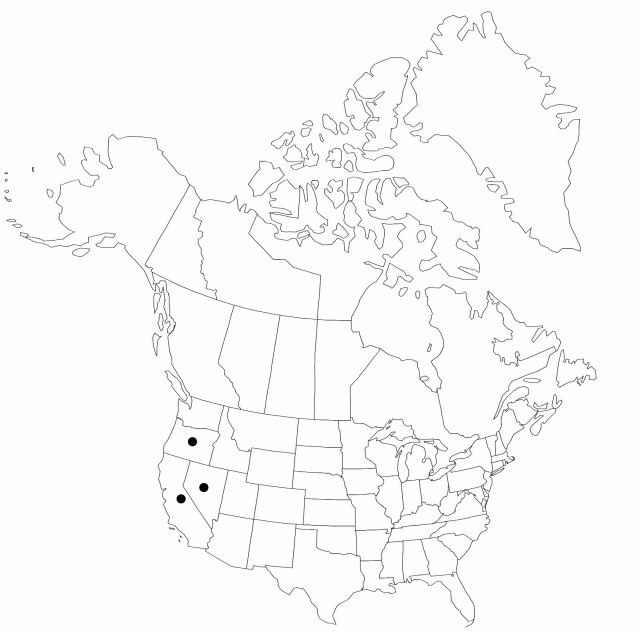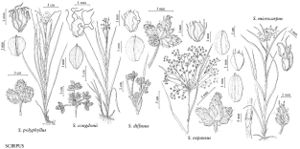Difference between revisions of "Scirpus congdonii"
Torreya 18: 36, fig. 1. 1918.
FNA>Volume Importer |
FNA>Volume Importer |
||
| Line 46: | Line 46: | ||
|publication year=1918 | |publication year=1918 | ||
|special status= | |special status= | ||
| − | |source xml=https://jpend@bitbucket.org/aafc-mbb/fna-data-curation.git/src/ | + | |source xml=https://jpend@bitbucket.org/aafc-mbb/fna-data-curation.git/src/f6b125a955440c0872999024f038d74684f65921/coarse_grained_fna_xml/V23/V23_13.xml |
|genus=Scirpus | |genus=Scirpus | ||
|species=Scirpus congdonii | |species=Scirpus congdonii | ||
Revision as of 19:07, 24 September 2019
Plants spreading; rhizomes tough, slender. Culms: fertile ones upright or nearly so; nodes without axillary bulblets. Leaves 4–8 per culm; sheaths of proximal leaves green or brownish; proximal sheaths and blades with septa few, inconspicuous; blades 13–26 cm × 3–7 mm. Inflorescences terminal, rarely also with 1 lateral inflorescence from distal leaf axil; rays ascending to divaricate, smooth or weakly scaberulous near nodes, rays without axillary bulblets; bases of involucral bracts green or speckled with red or black-margined, not glutinous. Spikelets in dense clusters of 2–20 (largest cluster with 10 or more), spikelets sessile, ovoid or narrowly ovoid, 2.5–6 × 1–3 mm; scales black with pale midribs, elliptic to ovate, 1.5–2.7 mm, apex mucronate to short-awned, mucro or awn 0.2–0.4 mm. Flowers: perianth bristles persistent, 6, slender, contorted, much longer than achene and projecting beyond it, with scattered, often inconspicuous, antrorse teeth in distal 1/2, enclosed within scales or some bristles projecting; styles 3-fid. Achenes pale to medium brown, obovate or elliptic in outline, plumply trigonous or plano-convex, 0.9–1.3 × 0.6–0.8 mm.
Phenology: Fruiting summer (Jul–Aug).
Habitat: Moist meadows
Elevation: 600–3000 m
Distribution

Calif., Nev., Oreg.
Discussion
Selected References
None.
